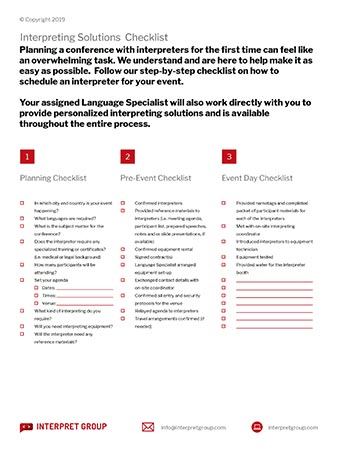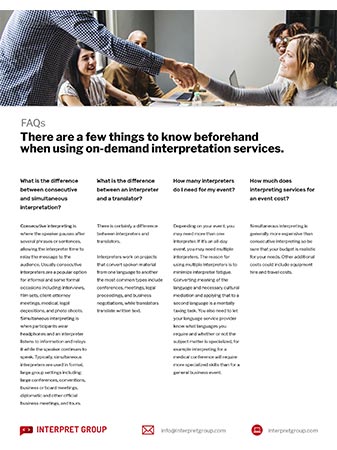Professional interpreters are not only bilingual but they understand both the words and the culture behind those words – in two or more languages
Interpreting is highly specialized profession that requires skill and practice. Professional-level interpreters bring a unique skill-set that the average bilingual person does not possess or has refined. That being so, selecting a qualified, proficient interpreter for your project will determine how well your message will be delivered. Here are a few characteristics to look for in a professional interpreter.
Extensive Vocabulary
Interpreters have to be on their A-game at all times requiring a deep knowledge of vocabulary and nuance in both the source and target languages. An interpreter should also be able to speak the target language at the level of an educated native speaker and effectively interpret idioms, metaphors and meaning.
Job Experience
Accreditation or certificates from a reputable interpretation institution shows that an interpreter has put in the necessary work to do the job well. Those who have undergone professional schooling will not only have a better grasp on language requirements, but also codes of ethics.
Local Knowledge
A strong grasp on cultural norms and customs will help the interpreter better convey what a non-native speaker is trying to get across. Having a deep knowledge of local customs will help protect you from needless complications.
Nerves of steel
Skilled interpreters know how to keep their cool and remain relaxed, even in tough situations.
A professional interpreter is an invaluable resource in any face-to-face negotiation or meeting among clients that have a language barrier. Interpreters should be equipped with a number of linguistic and listening skills that properly get your message across and let you know exactly what they are saying, too. Using these simple guidelines should help you separate the amateurs from the professionals.








